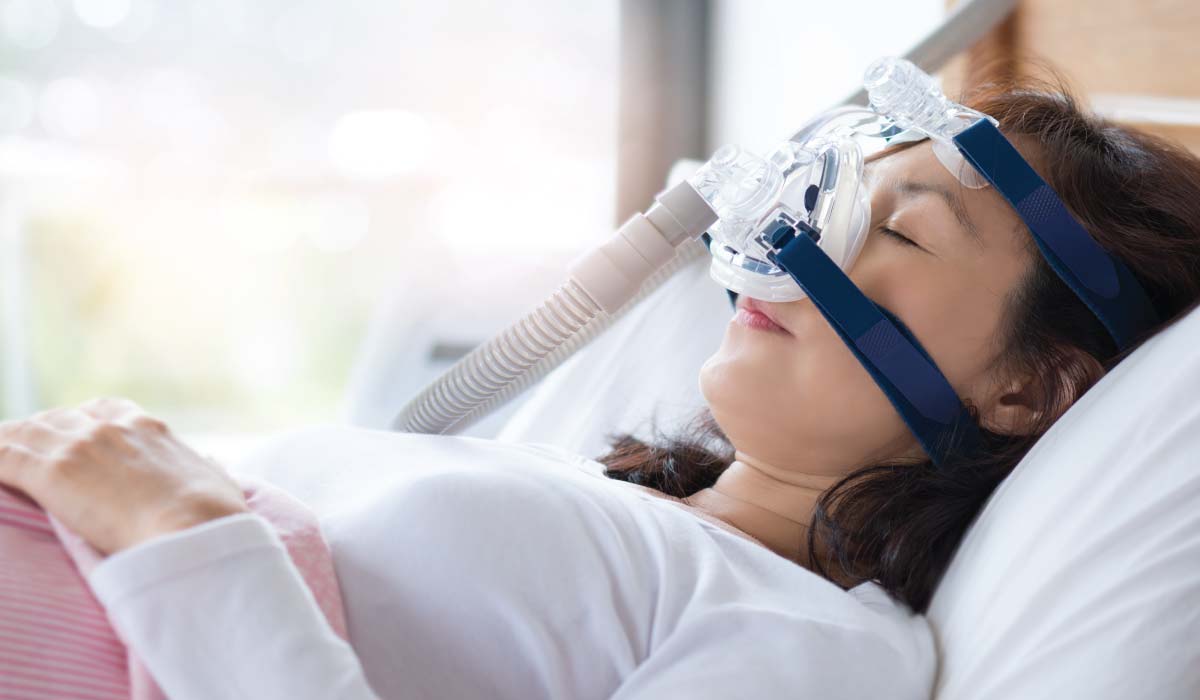CALL TO DISCUSS TREATMENT OPTIONS
732-455-3030
CALL TO DISCUSS TREATMENT OPTIONS
732-455-3030

Sleep apnea is a potentially serious disorder in which breathing during sleep repeatedly stops and starts. The term apnea can be translated to “without breath” and refers to a breathing pause that lasts as short as 10 seconds to over a minute. This involuntary pause can result either from a blocked airway or a signaling problem in the brain. Either way, the brain and rest of the body may not be getting the oxygen they require. Once the airway is open again or the brain receives the required breathing signal, the person will exhibit disruptive sleep patterns. These patterns include snorting, deep breathing, or waking up completely.
The most common types of sleep apnea are:
Though there are several types of the disorder , the two prominent types are obstructive sleep apnea and central sleep apnea. It is important to understand the key differences between these sleeping disorders to know how to properly treat each one.
A number of risk factors can contribute to sleep apnea, although the most common include:
Sleep apnea is very common, affecting more than 18 million Americans according to the National Sleep Foundation. Studies have found that 1 in 5 adults have mild symptoms of OSA, while 1 in 15 display moderate-to-severe symptoms. It occurs in all age groups and sexes, but it is most commonly seen in overweight males over the age of 40. That said, recent studies conducted by the American Journal of Epidemiology have found that by the age of menopause, 20% or more of women will develop sleep apnea due to reductions in estrogen levels. Though all of these conclusions can give us a ball park idea of how common it is, a lack of awareness by the public and many health care professionals have resulted in the vast majority of patients remaining undiagnosed, and therefore untreated despite the seriousness of the disorder.
Out of 18 million Americans affected, it is believed that only 20% of people have been diagnosed and treated. However, in most cases, the people with sleep apnea are unaware of any breath stoppages because their type of disorder does not trigger a full awakening. Symptoms of sleep apnea include:
Though these are good indications someone is suffering from sleep apnea, there will not always be symptoms present. If you think you may have a sleeping disorder, contact Sleep Dynamics in NJ for a consultation with one of our highly qualified sleep physicians.
Treatment ranges from lifestyle changes to surgery. Some simple behaviors you can incorporate into your life to help treat mild cases include losing weight, avoiding drugs (such as alcohol, tobacco, and sleeping pills), and changing your sleeping positions (avoid sleeping on back). Though lifestyle changes may mitigate symptoms, it is best to get a professional’s opinion on the treatment option that is right for you. The most common treatment methods used include:
According to the National Sleep Foundation, CPAP is the leading therapy for sleep apnea. The majority of people who use CPAP find immediate symptom relief and find they are able to control their apnea. CPAP has fully resolved sleep apnea in some cases, but only when it is properly and regularly used.
Because apnea is a serious medical condition, when left untreated it can cause serious health complications over time. These effects include:
Untreated apnea can increase your risk of multiple diseases that can lead to death. Additionally, moderate-to-severe apnea may also increase your risk of recurrent heart attack. If you have heart disease, multiple episodes of low blood oxygen can lead to abnormal heartbeats and sudden death.